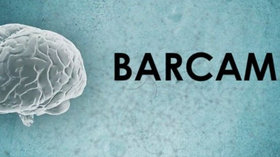Month: December 2011

The global #occupy movement so far: a map (and a database)
An Occupy-affiliated group, We All Occupy, has been concocting a database of over 1300 geocoded Occupy locations and putting them on a map! For all of your activist/data journalist/citizen journalist pleasure.

The philosopher and the smoker (on the death of Michael Dummett)
A philosopher is someone who claims the sentence “Father Christmas smokes” is an example of realism. Or at least this… read more The philosopher and the smoker (on the death of Michael Dummett)

Influence, ignorance, and doubt: two scientific articles
For the sake of knowledge and democracy, let doubt and lack of information prevail! At least these are the surprising results of two recently published scientific articles…

Dictators, democracies, and technology: Evgeny Morozov's keynote speech at #28c3 (Berlin, 12.27.11)
Pre-release video of Evgeny Morozov’s keynote speech Marriage From Hell: On the Secret Love Affair Between Dictators and Western Technology Companies delivered on dec. 27th, 2011 at the 28c3, 28th Chaos Communication Congress “Behind Enemy Lines”.

Dans Télérama (n. 3233, 21 décembre 2011)
Le sociologue Antonio Casilli, auteur de Les liaisons numériques. Vers une nouvelle sociabilité ? (Ed. du Seuil), interviewé par Benoît Daragon dans un numéro spécial “Familles” de Télérama.

"Surveillance participative et vie privée en réseau" : présentation d'Antonio Casilli au colloque Internet y el futuro de la democracia (Espagne, 20 déc. 2011)
Le sociologue Antonio Casilli, auteur de Les liaisons numériques. Vers une nouvelle sociabilité ? (Ed. du Seuil), interviendra au colloque international “Internet y el futuro de la democracia”. Organisé par l’Institut pour la Gouvernance Démocratique Globernance, le colloque aura lieu au Parlement Basque (Vitoria-Gasteiz) le 19 et 20 décembre 2011.

Podcast "La BD à l'âge du Web" avec Antonio A. Casilli (France Culture, La Grande Table, 8 déc. 2011)
Podcast de la Grande Table, le magazine culturel de la mi-journée sur France Culture, consacré à la BD à l’âge du Web. Pour en parler avec Caroline Broué, les historiens André Gunthert et Pascal Ory et le sociologue et chercheur-enseignant en Digital Humanities Antonio Casilli, auteur de Les liaisons numériques. Vers une nouvelle sociabilité ? (Ed. du Seuil)…
Quatre vidéos d’Antonio A. Casilli au Barcamp "Médias sociaux dans l’enseignement supérieur" (07 déc. 2011)
Le sociologue Antonio Casilli, auteur de Les liaisons numériques. Vers une nouvelle sociabilité ? (Ed. du Seuil), ouvrira la deuxième journée du Barcamp 2011 Pratiques de l’Internet participatif et des médias sociaux dans l’Enseignement supérieur, Centre International d’Etudes Pédagogiques (CIEP), 1 avenue Léon Journault, 92318 Sèvres. L’intervention, ayant pour titre Les médias sociaux, entre nouvelle sociabilité et nouvelle misère en milieu étudiant, aura lieu entre 9h30 et 10h30.

Compte rendu du séminaire "Idéologie des jeux vidéo" d'Olivier Mauco [Updated: 15 déc. 2011]
Séminaire EHESS d’Olivier Mauco “Idéologie des jeux vidéo d’action” : un état de l’art des lectures de l’idéologie appliquées au medium vidéoludique, en prenant pour cas d’étude les jeux Pac-man et Grand Theft Auto IV (GTA IV). Mercredi 14 décembre 2011, de 17h à 19h, Salle du conseil B, R -1, bât. Le France, 190-198 av de France 75013 Paris.
